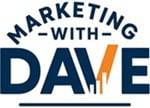Successful marketing automation isn’t just about choosing the right tools—it’s about mastering the key principles that drive efficiency and results. In this guide, we’re covering Marketing Automation Software from A to Z—or in this case, from Audience to Zero Spam—breaking down the essential strategies and features that help businesses scale, personalize, and optimize their marketing efforts. Whether you’re selecting a platform or refining your automation strategy, these are the must-know elements that result in others taking notice of marketing operations.
A
Audience
The first step in any email marketing campaign is identifying your target audience.
B
Bounce, Hard and Soft
Bounce refers to emails that fail to reach the recipient, with hard bounces indicating permanent issues and soft bounces temporary problems.
C
Contacts
Contacts are the individual records containing subscriber or customer information, essential for targeted marketing.
D
Deliverability
Deliverability measures the success rate of your emails reaching recipients’ inboxes, which is crucial for campaign effectiveness.
E
Email Service Provider (ESP)
An ESP is a platform that enables you to send bulk emails and manage your email marketing campaigns, ensuring scalability and compliance.
F
Forms
Web forms can be used to gather important data about your audience and can be integrated with marketing automation software.
G
Geotargeting
Geotargeting uses geographic data to deliver tailored marketing messages based on location.
H
Header
Header refers to the top section of an email that typically includes branding and navigation elements, setting the tone for the message.
I
Images
Images are visual elements that capture attention and enhance engagement within your emails.
J
Junk Mail or Spam
Junk Mail, or Spam, refers to unsolicited emails that can harm deliverability and damage brand reputation.
K
Key Performance Indicator (KPI)
Important metrics to measure the success of your email campaigns include open rates, click-through rates, and conversions.
L
Lead Scoring
Lead Scoring assigns numerical values to prospects based on their behavior and attributes to prioritize follow-up actions.
M
Mobile Optimization
Emails should be optimized for mobile devices, as the majority of emails are now opened on smartphones.
N
Nurturing Programs
A series of automated emails designed to educate and nurture subscribers over time.
O
Opt-in
Subscribers should opt-in to receive emails, and there should be clear options for them to opt-out as well.
P
Personalization
Marketing automation software can be used to personalize emails based on subscriber data, such as name and location.
Q
Queue
Queue refers to the ordered list of emails scheduled to be sent, ensuring timely and efficient campaign delivery.
R
Reporting
Analytics and reporting features help measure the success of email campaigns and support data-driven decision making.
S
Segmentation
Subscribers can be segmented based on interests and behaviors to create more targeted and personalized campaigns.
T
Testing
A/B testing can be used to optimize subject lines, content, and calls-to-action for maximum effectiveness.
U
Unsubscribes
Unsubscribes refer to the process by which subscribers opt out of future emails, helping maintain list quality and compliance.
V
Views for Contacts and Accounts
This term refers to the various ways of visualizing and organizing subscriber and customer data for actionable insights.
W
Welcome Emails
Automated welcome emails are sent to new subscribers to introduce them to your brand and set expectations for future communications.
X
XML
XML is a markup language used for data exchange between systems, facilitating integration with marketing automation tools.
Y
Yield
Automated email campaigns can yield high conversion rates and provide a strong ROI for your marketing efforts.
Z
Zero Spam
Email campaigns should comply with spam regulations and offer a clear opt-out option to prevent unwanted messages.
